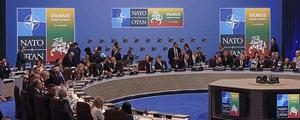Seventy years ago, Gallup started asking Americans whether they approve or disapprove of the job performance of the president of the United States. This metric -- the president's job approval rating -- quickly became a staple in modern politics.
In addition to asking Americans how they feel about the president, we also wanted to know how the world feels about U.S. leadership. So Gallup took the famous job approval question global. Now we ask people in 135 countries how they feel about the job performance of U.S. leadership. Additionally, we ask those same people how they feel about the leadership of the European Union, Germany, Russia and China.
This week, Gallup released Rating World Leaders: What People Worldwide Think of the U.S., China, Russia, the EU and Germany, the first-ever Gallup report on global public opinion about these major world powers. It offers an unprecedented look at how the world has viewed each of them for the past eight years, it covers where they are the most and least popular, and it looks closely at how countries in the international crosshairs and headlines -- such as Greece, Afghanistan, Iraq and Ukraine -- rate them.
The report reveals that median approval of U.S. leadership has been mostly stable during President Barack Obama's time in office and among the highest in the world when compared with Russia, China, the EU and Germany -- and has been the highest for two years running. While the 27% median disapproval is on the higher side for Obama's presidency, it is still much lower than the levels seen during the last years of George W. Bush's administration. Russians gave U.S. leadership -- as well as that of the EU -- their lowest approval ratings in the world.
Russia is the only country whose leadership receives higher disapproval ratings than approval ratings, at 22% median approval versus 36% median disapproval.
Meanwhile, approval of Germany's leadership increased by 10 percentage points or more in 11 countries, from 2013 to 2014. Nine of these 11 countries are EU member countries -- and the list includes all of the bailout countries except for Greece.
At the same time, there were double-digit declines in the approval of China's leadership in nine countries and double-digit increases in four. Russia leads the increases in approval with 42% approving of China's leadership.
Commentators may review this report and wonder, "Why should Americans care what the rest of the world thinks? And why should the leaders of the EU, China, Russia or Germany care?"
Global thought leader Joseph Nye popularized a concept known as soft power, which refers to the amount of power countries possess to get other countries to cooperate with them not because they have to, but because they want to. Recent research suggests this concept is quantitatively true. Academics at Dartmouth and Sydney University found that "public opinion about U.S. foreign policy in foreign countries does affect their policies toward the U.S."
The data in this report quantify what people worldwide think of the leadership of the U.S., the EU, Russia, Germany and China. They also attempt to quantify the amount of influence each of the world powers has, or doesn't have, outside of its traditional means of influence such as economic sanctions or military might. While foreign policy may not hinge on public opinion, leaders of the U.S., the EU, China, Russia and Germany would be wise to closely follow the data in this report.
Read the full report.

